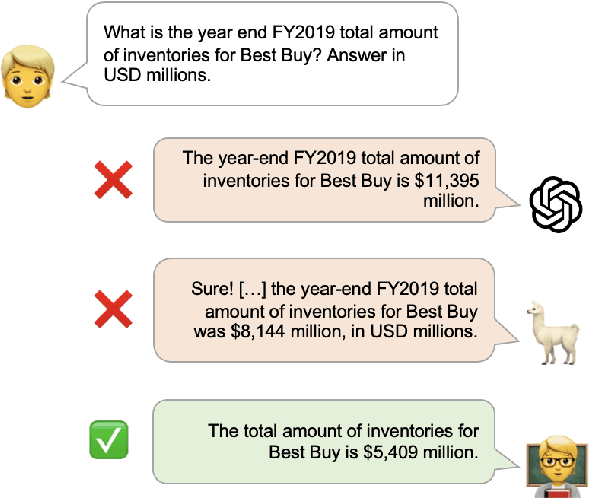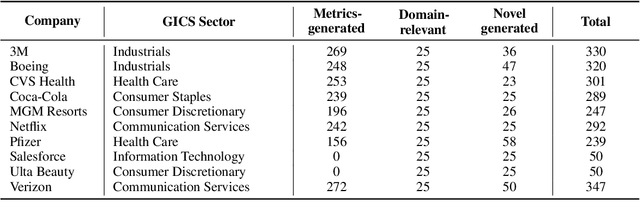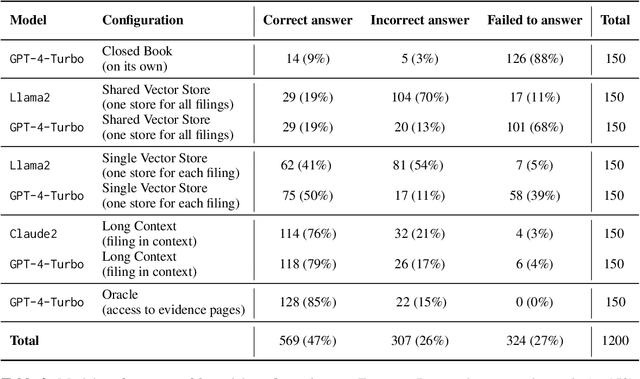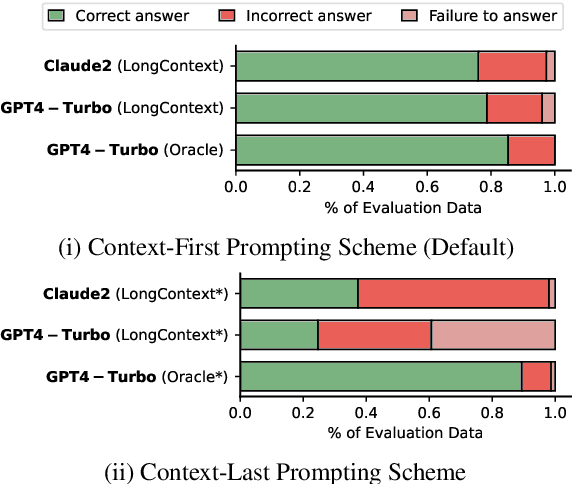Pranab Islam
FinanceBench: A New Benchmark for Financial Question Answering
Nov 20, 2023



Abstract:FinanceBench is a first-of-its-kind test suite for evaluating the performance of LLMs on open book financial question answering (QA). It comprises 10,231 questions about publicly traded companies, with corresponding answers and evidence strings. The questions in FinanceBench are ecologically valid and cover a diverse set of scenarios. They are intended to be clear-cut and straightforward to answer to serve as a minimum performance standard. We test 16 state of the art model configurations (including GPT-4-Turbo, Llama2 and Claude2, with vector stores and long context prompts) on a sample of 150 cases from FinanceBench, and manually review their answers (n=2,400). The cases are available open-source. We show that existing LLMs have clear limitations for financial QA. Notably, GPT-4-Turbo used with a retrieval system incorrectly answered or refused to answer 81% of questions. While augmentation techniques such as using longer context window to feed in relevant evidence improve performance, they are unrealistic for enterprise settings due to increased latency and cannot support larger financial documents. We find that all models examined exhibit weaknesses, such as hallucinations, that limit their suitability for use by enterprises.
Analyzing Bagging Methods for Language Models
Jul 19, 2022



Abstract:Modern language models leverage increasingly large numbers of parameters to achieve performance on natural language understanding tasks. Ensembling these models in specific configurations for downstream tasks show even further performance improvements. In this paper, we perform an analysis of bagging language models and compare single language models to bagged ensembles that are roughly equivalent in terms of final model size. We explore an array of model bagging configurations for natural language understanding tasks with final ensemble sizes ranging from 300M parameters to 1.5B parameters and determine that our ensembling methods are at best roughly equivalent to single LM baselines. We note other positive effects of bagging and pruning in specific scenarios according to findings in our experiments such as variance reduction and minor performance improvements.
 Add to Chrome
Add to Chrome Add to Firefox
Add to Firefox Add to Edge
Add to Edge